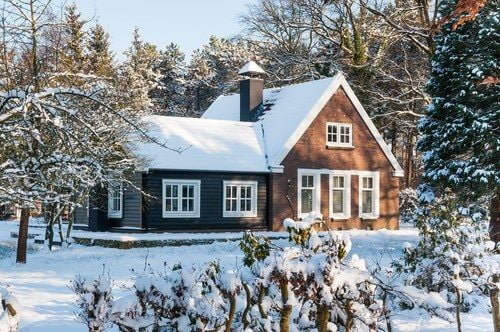

Economy
Unheated Homes May Fall To Unsafe Temperatures This Weekend
Experts have warned that with arctic blasts expected to sweep across the country, temperatures in millions of UK households could fall to dangerous levels with people fearing high heating bills.
With the mercury set to plummet below zero and snow predicted for large parts of the UK, the Energy Saving Trust has said it has concerns over a study that shows 42 per cent of householders across the country avoid putting the heating on during cold spells due to concerns about high bills.
A study by Public Health England found that indoor temperatures below 18 degrees can have an impact on health, and the Energy Saving Trust is now urging people not to take risks and ensure instead that their homes are able to cope with the conditions.
David Weatherall, head of policy at the Energy Saving Trust, said: “People could be jeopardising their health because they feel they don’t want to face a large bill – but help is available to prevent that situation.
If unheated, the internal temperature of a home can drop quite quickly and, if the heat is left off long enough, indoor temperatures can even match conditions outside.
“The coming cold snap could be putting people at risk – but with more cold weather ahead, we’d urge people, both tenants and homeowners alike, to get in touch with us and find out what help is available.”
Public Health England’s study revealed that temperatures of 18 degrees pose minimal health risk to a sedentary person wearing suitable clothing. At lower temperatures, negative health effects may occur, such as increases in blood pressure and the risk of blood clots which can lead to strokes and heart attacks.
Meanwhile, the Energy Saving Trust’s Pulse study of UK household energy habits also found that more than a third of us also find it difficult to keep our homes as warm as we’d like.
Mr Weatherall said: “Homeowners or renters in receipt of benefits may get some help towards the cost of fitting insulation or a new boiler, so it’s worth checking.
The best place to start is by calling the Energy Saving Advice Service on 0300 123 1234 or by looking at our website.
“Tenants who have major problems with cold and damp and whose landlord won’t help should contact their local authority housing health and safety team.
“Perhaps the easiest way to make heating your home cheaper is to consider switching energy supplier. Many can save £300, and checking how much you can reduce your bills by only takes a few minutes.
“With the cold weather set to continue for many weeks, acting quickly can mean escaping the worst of the winter chills.”
The Energy Saving Trust says seven simple tips can make your home easier to heat:
- Draught-proof your home
Improving seals on windows and doors reduces creeping chills and save you up to £35 per year. - Insulate your pipes
Adding foam insulating tubes to water pipes is a great way to prevent unnecessary heat loss and can save you £10 per year. - Upgrade heating controls
Got no temperature control valves on your radiators? Adding them gives you more power to save – add a thermostat too and you could pocket anything from £75 to £155 per year in extra cash. - Get a new boiler
If your boiler is more than 10 years old, upgrading can significantly reduce your household’s running costs. - Top up hot-water cylinder insulation
A hot water cylinder jacket can cost just £16, but can save you £25 to £35 per year. - Top up loft insulation
Adding an extra layer of insulation to your loft is a quick way to reduce heating bills by £15 per year. - Insulate your walls
Preventing warm air escaping through your walls by insulating your walls can reduce heating bills from £155 to £260 per year depending on your home.
Household efficiency information and advice can be found on the Energy Saving Trust website, on www.energysavingtrust.org.uk/shiver. To contact the Energy Saving Advice Service phone 0300 123 1234.


 Environment12 months ago
Environment12 months agoAre Polymer Banknotes: an Eco-Friendly Trend or a Groundswell?

 Features11 months ago
Features11 months agoEco-Friendly Cryptocurrencies: Sustainable Investment Choices

 Features12 months ago
Features12 months agoEco-Friendly Crypto Traders Must Find the Right Exchange

 Energy11 months ago
Energy11 months agoThe Growing Role of Solar Panels in Ireland’s Energy Future




























